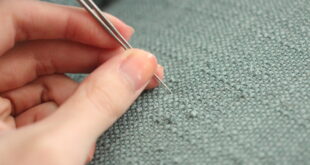Insects, pests, and bugs can be one of the most unwelcome and disgusting problems to deal with in the family home. It is more than simply the ‘yuck factor’, bug infestations that go untreated can have detrimental consequences for human health and also the structure of your building. Keeping to a regime of prevention and, where appropriate, treatment is essential to running a successful home. Here is a quick guide to eliminating pests and bugs from the family home.
Prevent them from Entering
Prevention is the key to success in achieving a bug-free home. It makes sense. If they can’t get in, then they can’t cause problems. Much of this article, quite rightly, concerns preventative measures. But what we are talking about here is the prevention of entry. Have a close look at anywhere bugs could enter. Make sure all your doors and windows are properly sealed. Check vents and other openings, if you have had any drilling work in your walls, such as when outdoor electricals are installed, and ensure there are no small gaps in the masonry.

Regular Inspection of the Home
Start a timetable of inspection for your home. When looking for insects, it’s not just to see the bugs themselves, but evidence of their presence. Some offenders are invisible to the naked eye, such as bedbugs, so indicators such as red spots on bedsheets (where they have been crushed) are key. For other types of bugs, look for eggs or damage to timber and fixings.
Keep a Clean & Tidy Home
A clean and tidy home is good for general health. A thorough routine helps prevents infections and even prevents irritation of respiratory conditions, such as asthma. But why does a clean house prevent bugs from spreading? It’s pretty much food. All animals need a food source, and insects are no different. Given the size of these tiny critters, it doesn’t take much to attract an infestation. Regularly clean surfaces, check behind appliances such as stoves or refrigerators, and avoid eating in bed or on the couch. Vacuum carpets, mop floors, and clean behind furniture regularly.
Indoor Plants
Keeping indoor plants is a risk for attracting insects into the home. When keeping plants, it is essential to keep on top of checking for infestations to avoid damage or destruction of the plant. We also must avoid infestation transferring over to other areas of the home. Bugs can be attracted to the plants themselves as a food source, the moisture, and soil they are planted in. You should check the leaves, the soil, and roots of the plant as often as possible. Pruning of dead leaves and stems is also a regular maintenance task that should not be neglected.

Consider Your Outside Spaces
Additionally, we have a large amount of organic material on our doorstep, literally. Our back yard is likely to be one of the prime candidates of where an infestation can originate. If we keep a messy and overgrown yard, these problems will be much more of a worry. There is an almost unlimited number of potential insects that are found in a domestic yard. Some are irritating to us and need to be removed, for that reason, see how to treat the yard for no see ums. Others can cause more structural issues such as the various types of woodworm that are an issue if they get into your timber.
Food Waste
Food waste has become much more of an issue in recent years. We have seen a dramatic increase in the number of people using food composting at home. This trend is great for the environment, but the relative newness as behavior has left many vulnerable to associated issues. Where possible, food compost bins should be kept outdoors and as far away from the house as is possible. This prevents the transfer of bugs and insects, but also will keep any odors at a distance in the warmer months.
Call a Professional
The advice given in this article has given a good number of tips and info on how to prevent bugs and to treat them. However, following this advice offers no guarantees that we will keep these tiny invaders at bay. If a problem does not go away or worsens, then call an appropriate professional for treatment or extermination. It’s easy to search and find a professional by using this handy search website, input your zip code, and check out the list of available operators.



